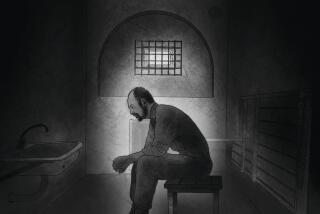Soviet Psychiatric Abuses Have Been Cut, Team Says
- Share via
WASHINGTON — American experts who inspected Soviet psychiatric hospitals said today that previous wide-scale abuses have been reduced, but mental institutions are still being used by some Soviet authorities to punish political dissidents.
The 26-member American team was led by Robert Farrand, deputy assistant secretary of state for human rights, and Loren Roth, professor of psychiatry at the University of Pittsburgh School of Medicine.
The American team included 14 psychiatrists, one psychologist, two lawyers, two specialists in human rights and six interpreters.
They were allowed to visit a series of Soviet psychiatric hospitals from Feb. 26 to March 12, interviewing 15 patients and 12 former patients who had recently been released by Soviet authorities. Of the 12 who had been released, the American team found that 11 had been confined for reasons that were essentially political, including the distribution of literature banned by Soviet authorities.
The American team concluded: “There are some signs of movement to bring legal and psychiatric practices closer to those found in the West. Yet, there are also many signs that the transition is far from complete.”
Among the abuses the American team found was the use of antipsychotic medications to treat patients who were thought to have “delusions of reformism” or “anti-Soviet thoughts.”
One drug, called sulfazine, which causes severe pain, fever and loss of muscular control, was used “for punitive rather than therapeutic purposes,” the American team reported.
A Soviet response to the U.S. report said the government is writing guidelines to restrict the use of such drugs.
The response conceded that some shortcomings in mental institutions may still exist, but suggested that the American team erred by accepting, at face-value, statements made by every Soviet mental patient who was interviewed.
More to Read
Sign up for Essential California
The most important California stories and recommendations in your inbox every morning.
You may occasionally receive promotional content from the Los Angeles Times.













